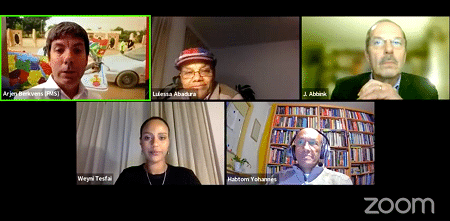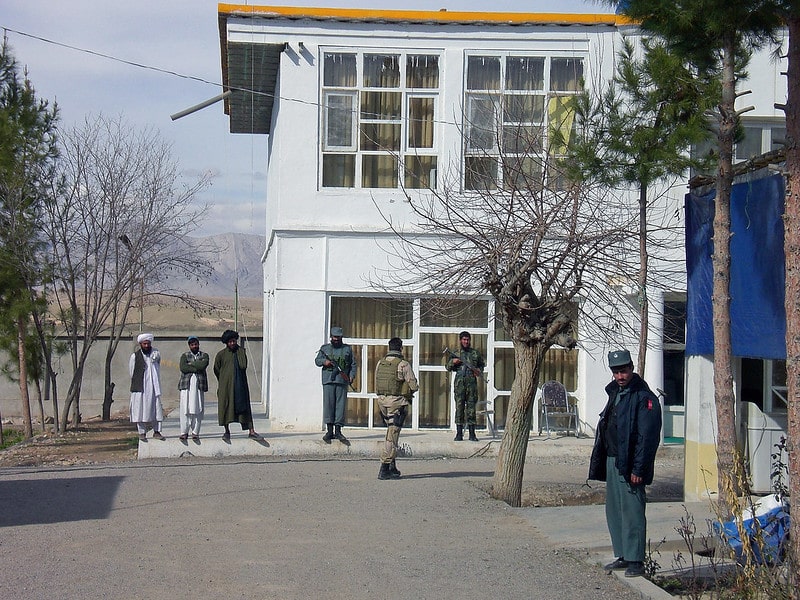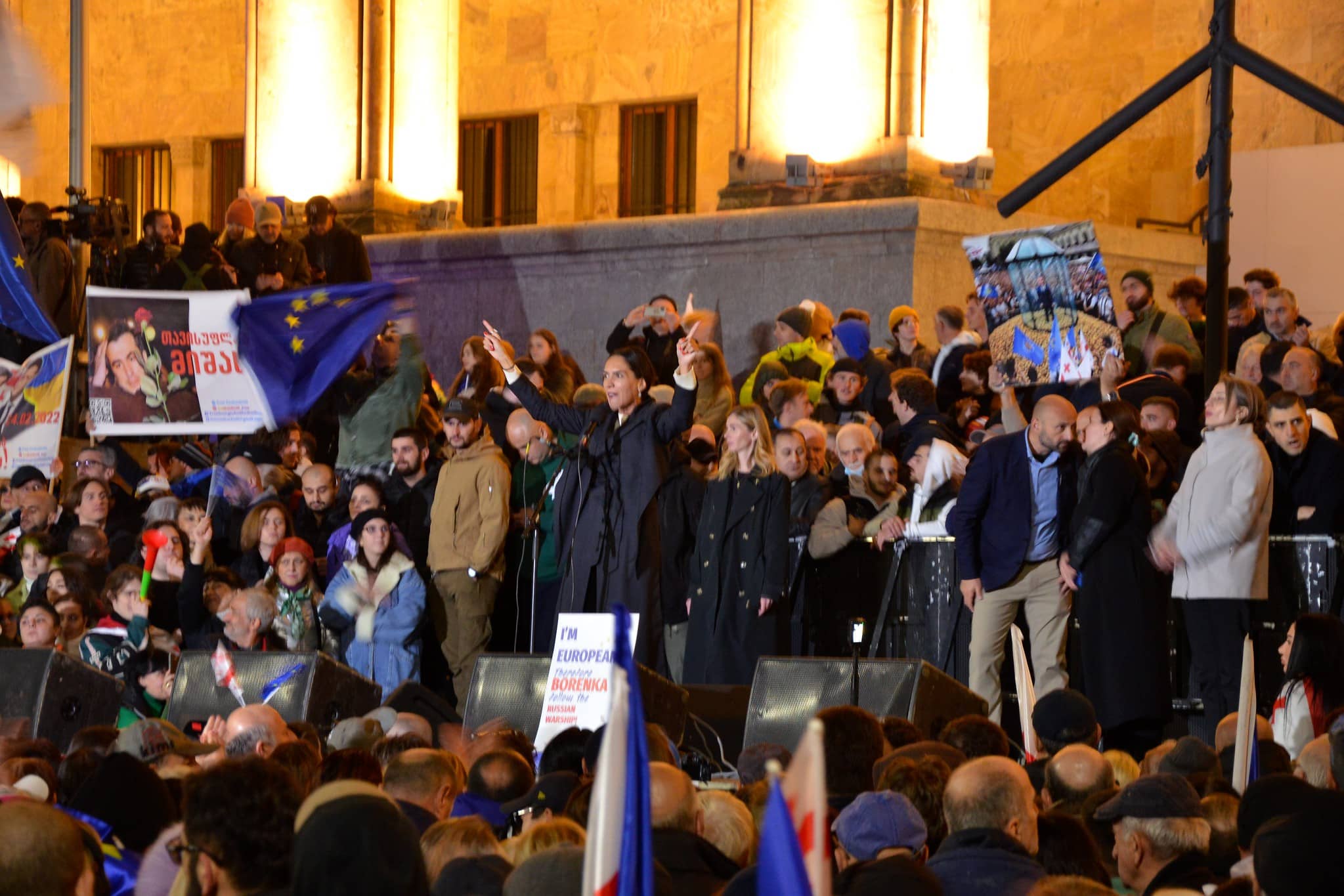On 20 January, we organised an online political café on Ethiopia, in view of the recent escalation of the conflict. Our speakers were Lulessa Abadura from the Gurmuu Foundation; Habtom Yohannes, PhD candidate at Radboud University; Jan Abbink from Leiden University; and Weyni Tesfai, cultural anthropologist and historian in the field of Africa studies.
Arjen Berkvens started the political café by explaining the current state of Ethiopia. A few years ago, the news about Ethiopia became positive and optimistic when Prime Minister Abiy's leadership began. He normalised contact with Eritrea, ending a 20-year war, and was awarded the Nobel Peace Prize for it. In the past two years, however, we have seen a different side of Prime Minister Abiy: a war broke out in the Tigray region, and Prime Minister Abiy used a variety of, often degrading, methods to 'win' the conflict. These included reports of mass rapes and using the food shortage for political purposes. The conflict is still ongoing after a year, with many actors involved, and the question is whether and when it can end.
The complexity of conflict
Jan Abbink was the first speaker, emphasising that Prime Minister Abiy is not the only active actor in the conflict. The Tigray People's Liberation Front, TPLF, is problematic, and would hinder the democratisation process. Weyni Tesfai then argued that the way the Tigray region is being handled by the central government is a genocide, that huge damage is being done in the region, and that millions of people are suffering because of the situation. It became clear right away that the conflict has multiple sides and complexities, and the emphasis can vary a lot.
Lulessa Abadura added that there are actually many more groups involved, in part because Ethiopia's conflict has a long history with the different ethnic groups to form a country together. Habtom Yohannes also stressed that Ethiopia has experienced many more conflicts than the current one: he himself has memories of wars that took place in the 1990s, almost 30 years ago. In doing so, he emphasised the tragedy of the ongoing wars and the absence of independent media and critical self-view for all groups involved: the people of Amhara, Tigray, Oromo, etc. Conflict in Ethiopia is unfortunately not a rarity: the country has long suffered from armed resistance and the divisions in the country have not diminished.
A live discussion
What became more than clear in this political café was that the discussions around the conflict are still very much alive, and opinions about the situation and how actors would deal with it are very different. Time is needed to understand the conflict and the divergent positions. But in the meantime, the conflict continues, with no prospect of an end, and citizens are paying the price.





